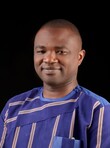Allah is Not Obliged by Ahmadou Kourouma: A Review

Aha! Welcome to the child-soldier-fiction-fest that is Allah is Not Obliged. It was first published in 2000; I first read it in 2023. As I read it, those tropes I’d seen in Hollywood movies about war-torn regions in Africa – fiction and nonfiction alike – started to come alive. I am not sure the effect this novel by Ahmadou Kourouma had on those Hollywood stories about the continent’s troubled zones, but Allah is Not Obliged is a powerful novel.
As the ten year old narrator, the “fearless, blameless, street kid, the small soldier’ (read “boy soldier”) Birahima, says, “Allah is not obliged to be fair about all things he does here on earth.” A fatalistic outlook on life that one has to adopt to survive the crazy. Birahima takes on a heart-stopping and heart-rending. It’s filled with zany characters, from fraudsters to sex abusers to mass murdering warlords. I assume it’s one of those novels that, rightly or wrongly, made the child soldier the face of Africa back in the noughties in popular culture.
For a child, Birahima comes across as worldly-wise, which could happen when anyone goes through what he went through early in life. He has to watch his physically challenged mother drag herself around while her infected legs give her endless pain, with the attendant ever present smell of rotting flesh; Birahima is told by the father figure he has around him, Balla, “…No kid ever leaves his mother’s hut because her fart stinks.” When the chance arrives for Birahima to leave his mother’s hut, he leaves for Liberia in the company of Yacouba, the sweet-talking hustler who transforms from smuggler to shaman, as the occasion dictates. Together, they travel from Guinea to Liberia, and then Sierra Leone in 1990s West Africa. An ambush, caused by an accidental shooting done by guards of their travel party in Liberia leads Birahima to the path of becoming a child soldier.
As they move from one war zone to the other, Birahima observes that, “That’s wars for you. Animals have more mercy for the wounded than humans.” He somehow manages to see the method in the madness of the warlords and commanders he comes across; above all is the desire for material things that drives their motivations. “General Baclay was weird, but she was a good woman and in her own way she was very fair. She shot men and women just the same, she shot thieves and it didn’t matter if they stole a needle or a cow. A thief is a thief, and she shot everyone of them. She was impartial.” The desolate situations of many of the child soldiers is also observed: “When you haven’t got no father, no mother, no brothers, no sisters, no aunts, no uncles, when you haven’t got nothing at all, the best thing to do is become a child soldier.” The warlords invoke God at every turn; the role of religion and superstition is keenly explored in the story. For instance, “God had commanded that he, Prince Johnson, wage tribal war. Wage tribal war to kill the devil’s men. The devil’s men had so gravely wronged the people of Liberia. And chief among the devil’s men was Samuel Doe.” The wiles of these troublesome warlords are presented with dark humour, for those with a high threshold for gore, and it could be horrifying for those who are a lot more sensitive.
To say that most of the warlords and commanders are insane would be an understatement. They encourage drug use among the child soldiers under their command (“A child-soldier needs drugs and hash doesn’t grow on trees. It’s expensive,” Birahima says.) The roles of West Africa’s big brother, Nigeria, in the wars in Liberia and Sierra Leone are also explored and their relation to the current times were eerie (There's currently serious public debate about whether Nigeria should invade neighbouring Niger to restore that nation to civilian rule, after the civilian president was ousted in a military coup). “Nigeria is the most heavily populated country in Africa ad has loads of soldiers they don’t know what to do with, so they sent their spare soldiers to Liberia with the right to massacre the innocent civilian population, the whole works. The Nigerian troops were known as the ECOMOG peace-keeping force. ECOMOG troops were now operating all over Liberia and even Sierra Leone and massacring people, all in the name of humanitarian peacekeeping.” As a Nigerian, I was struck by this. Many Nigerians heap praise the past achievements of their military in those nations; many are unaware of the well documented atrocities attributed to its troops in those countries.
I found it unrealistic that a boy locked away in child soldier camps, engaged in gun battles while raiding the camps of other commanders, would be politically aware enough to make some very accurate statements about the sociopolitical scene of 1990s West Africa. For instance, this remark which caused me to go into hysterics because of how true it is: “National conferences were the big political meetings that every African country held in 1994 where everybody just said the first thing that came into their heads.” However, you never know — that I am willing to concede. It’s possible the boy was only parroting things (propaganda?) he’d heard from his much older commanders.
I found the novel to be a page turner. Its strength is its overall realism. It confirms Marvin Gaye’s words in his song, “What’s Happening Brother” — “War is hell.”
Published on October 09, 2023 01:54
No comments have been added yet.



